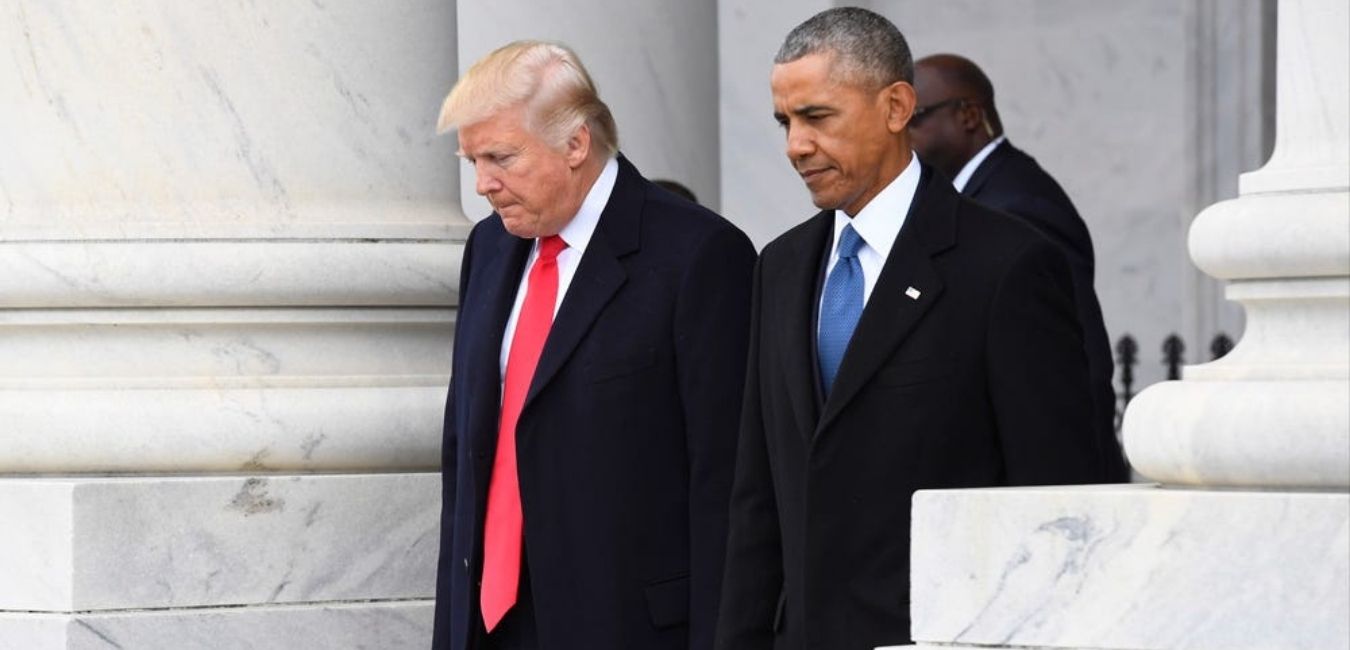Who are the best US presidents in history? Who were the Best Presidents ever—and how do Historians decide?
- Abraham Lincoln was voted the best US president in a survey where nearly 100 historians and biographers rated past commanders in chief on 10 leadership qualities.
- Notable best presidents included George Washington at No. 2, John F. Kennedy at No. 8, and Barack Obama at No. 12.
- Although Donald Trump isn’t included in the survey, recent national polls indicate that registered voters consider him to be energetic, but not even-tempered.
For C-SPAN’s most recent Presidential Historians Survey, conducted in 2017, nearly 100 historians and biographers rated 43 US presidents. The survey is released after a sitting president’s term, so C-SPAN will likely include current President Donald Trump in its next round of the ranking after he leaves office.
Although the usual election fervor has been overshadowed by the COVID-19 pandemic, President Trump has still been campaigning and holding reelection rallies around the country. In Tulsa, Oklahoma, he spoke to an arena of about 6,200 attendees on June 22, 2020, followed by another rally with 3,000 people on June 23 in Phoenix, Arizona.
A June 30 national poll from the Pew Research Center shows that the incumbent president is currently trailing behind his Democratic opponent, Joe Biden, with only months to go before the November election. According to the poll, 54% of registered voters say they’d support Biden or “lean toward voting for him” if the election were held right now — 44% of those surveyed say the same for President Trump.
In terms of personal qualities, the voters surveyed consider President Trump to be more courageous and energetic than Biden, while Biden pulls ahead of the president in being honest, even-tempered, and a good role model.
The 2017 C-SPAN survey measured 10 qualities of presidential leadership: public persuasion, crisis leadership, economic management, moral authority, international relations, administrative skills, relations with Congress, vision, pursuit of equal justice for all, and performance within the context of his times.
Scores in each category were then averaged, and the 10 categories were given equal weighting in determining the presidents’ total scores.
George Washington came in at No. 2, followed by Franklin D. Roosevelt at No. 3. George H. W. Bush ranked at No. 20, beating out his son George W. Bush who came in at No. 33. Other notable commanders in chief included John F. Kennedy at No. 8, Ronald Reagan at No. 9, and Barack Obama at No. 12.
While some historians weren’t shocked that Obama didn’t rank higher overall on the list — “That Obama came in at No. 12 his first time out is quite impressive,” Douglas Brinkley of Rice University said — others were surprised by his lower-than-expected leadership rankings, including No. 7 in moral authority and No. 8 in economic management.
“But, of course, historians prefer to view the past from a distance, and only time will reveal his legacy,” said Edna Greene Medford of Howard University.
Here are the top 20 presidents, according to historians surveyed by C-SPAN.
20. George H. W. Bush (41st president) ranked high in how he handled international relations.
Bush conducted military operations in Panama and the Persian Gulf during his tenure.
19. John Adams (second president) ranked highly for his “moral authority.”
18. Andrew Jackson (seventh president) had strong public persuasion during his tenure, according to historians.
Jackson’s supporters helped found the Democratic party after he lost the 1824 presidential election, despite getting the popular vote.
17. James Madison (fourth president) ranked highly for moral authority.
James Madison drafted and helped ratify the Bill of Rights before becoming president.
16. William McKinley Jr. (25th president) ranked highly for his relations with Congress.
With the help of Congress, McKinley passed the Dingley Act, the highest protective tariff in US history.
15. Bill Clinton (42nd president) ranked high for economic management.
14. James K. Polk (11th president) ranked highly for his crisis leadership and administrative skills.
Polk led the US to victory in the two-year Mexican-American War.
13. James Monroe (fifth president) ranked highly for his handling of international relations.
The president lent his name to the Monroe Doctrine, which asserted Latin America was under the US’s sphere of influence.
12. Barack Obama (44th president) ranked highly for his pursuit of equal justice for all.
Obama won the Nobel Peace Prize in 2009.
11. Woodrow Wilson (28th president) ranked highly for his “vision,” according to historians.
Wilson led the country during World War I and was instrumental in crafting the League of Nations, a precursor the United Nations.
10. Lyndon B. Johnson (36th president) ranked highly for his relations with Congress.
Johnson passed legislation including Medicare and Medicaid programs, the Civil Rights Act of 1964, and the Voting Rights Act of 1965.
9. Ronald Reagan (40th president) ranked highly for his public persuasion.
Domestically, Reagan is best known for cutting income taxes via two different federal laws: the Economic Recovery Tax Act of 1981 and the Tax Reform Act of 1986.
8. John F. Kennedy (35th president) ranked highly for public persuasion.
Kennedy became the youngest man and first Catholic elected president.
7. Thomas Jefferson (third president) ranked highly for his relations with Congress and his vision.
Jefferson vastly expanded the US borders through the Louisiana Purchase with France.
6. Harry S. Truman (33rd president) ranked highly for his crisis leadership and his pursued equal justice for all.
Truman took over as president when Franklin Delano Roosevelt died. He led the US through the final stages of World War II.
5. Dwight D. Eisenhower (34th president) ranked highly for his moral authority.
Eisenhower founded NASA and signed a law that would create the Interstate Highway System.
4. Theodore Roosevelt (26th president) ranked highly for his public persuasion.
Mount Rushmore depicts Roosevelt’s face, alongside George Washington, Thomas Jefferson, and Abraham Lincoln.
3. Franklin D. Roosevelt (32nd president) ranked highly for his public persuasion and handling of international relations.
FDR is the only president to have served more than two terms, dying in April 1945 at the start of his fourth term.
2. George Washington (first president) ranks highly for his economic management, moral authority, and performance within the context of his times.
Washington remains the only president to not have been affiliated with a political party during his time in office.
1. Abraham Lincoln (16th president) ranks best for his crisis leadership, administrative skills, vision, and pursued equal justice for all.
History.com calls Lincoln’s Gettysburg Address “arguably the most-quoted, most-memorized piece of oratory in American history.”
Source: BusinessInsider







